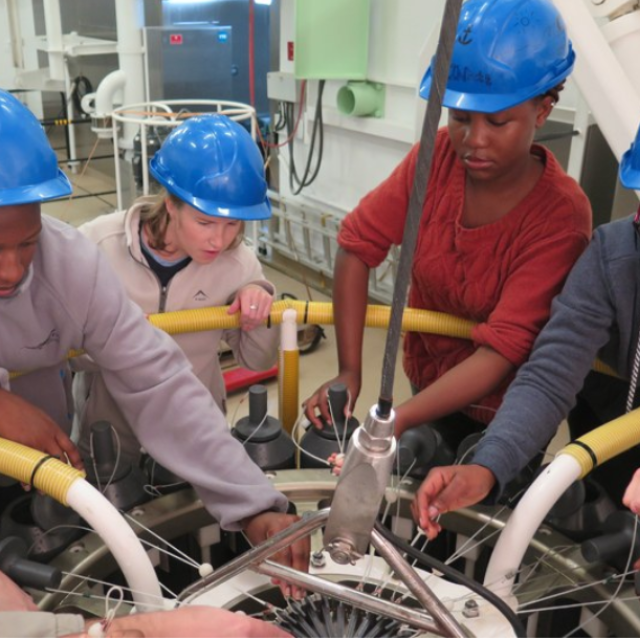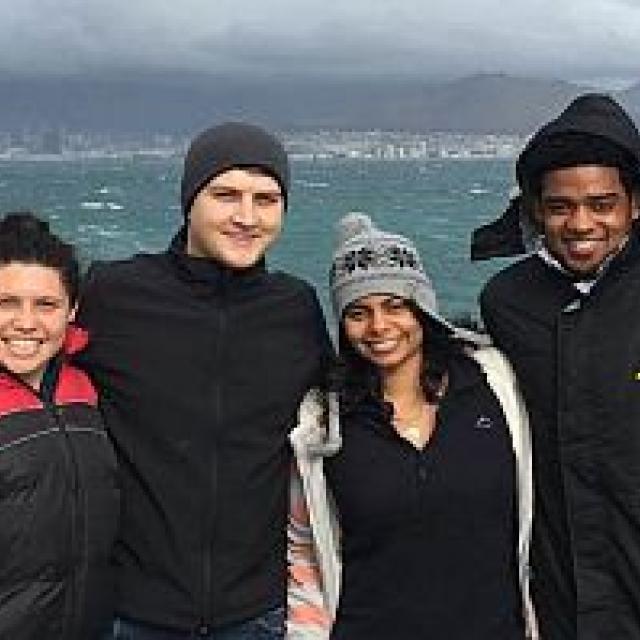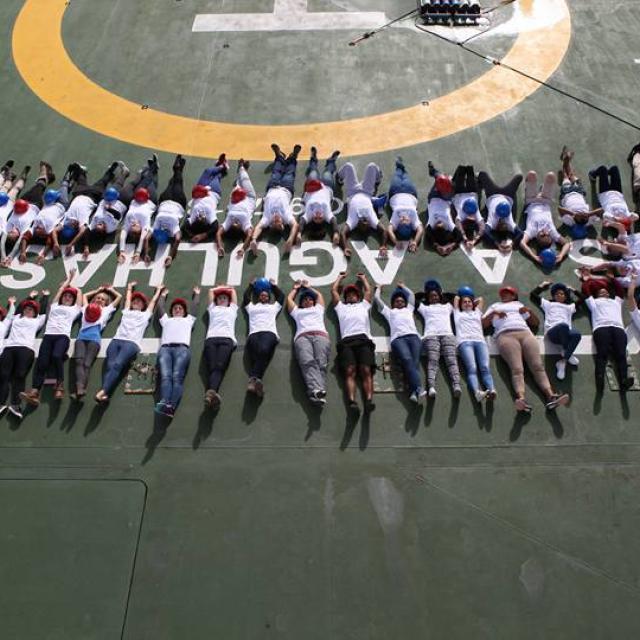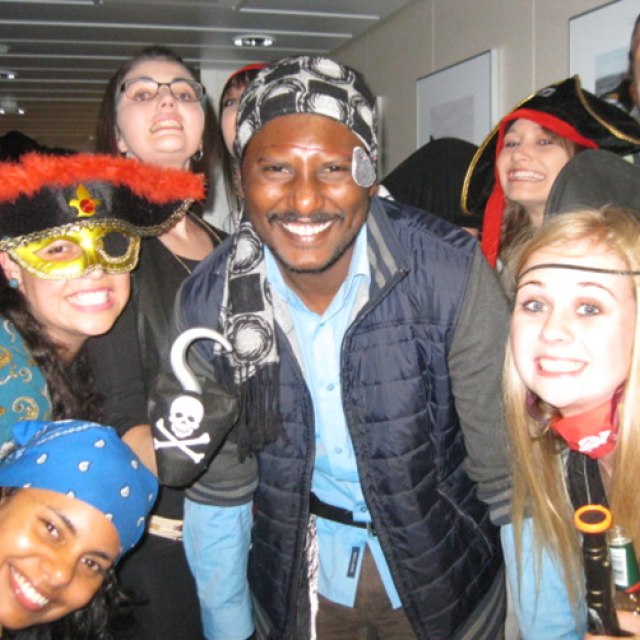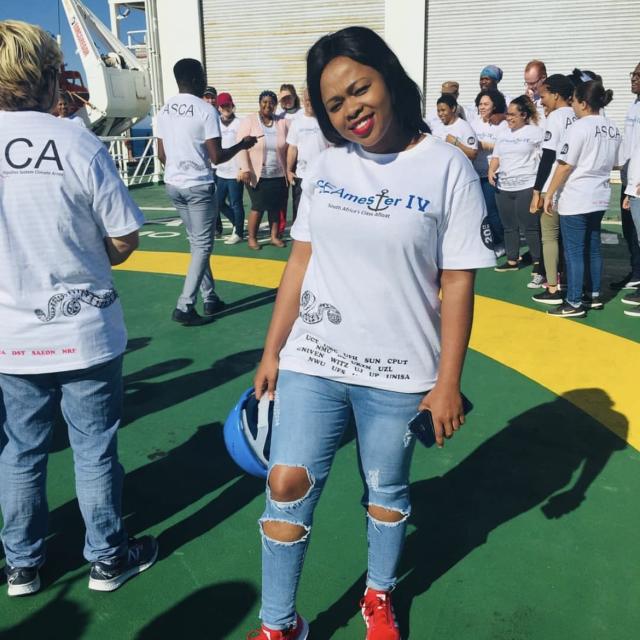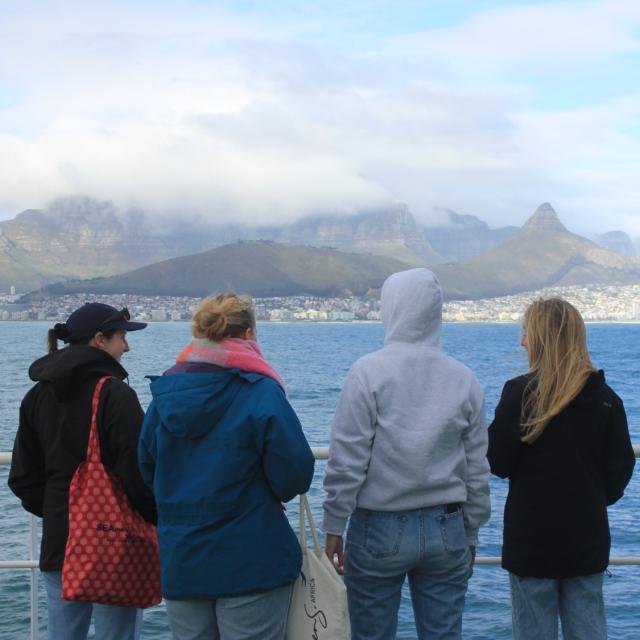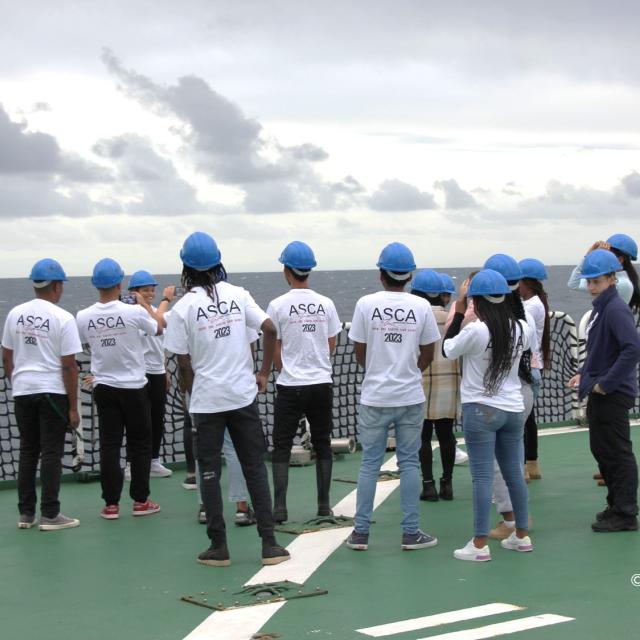Have you ever been to sea? Join SEAmester!
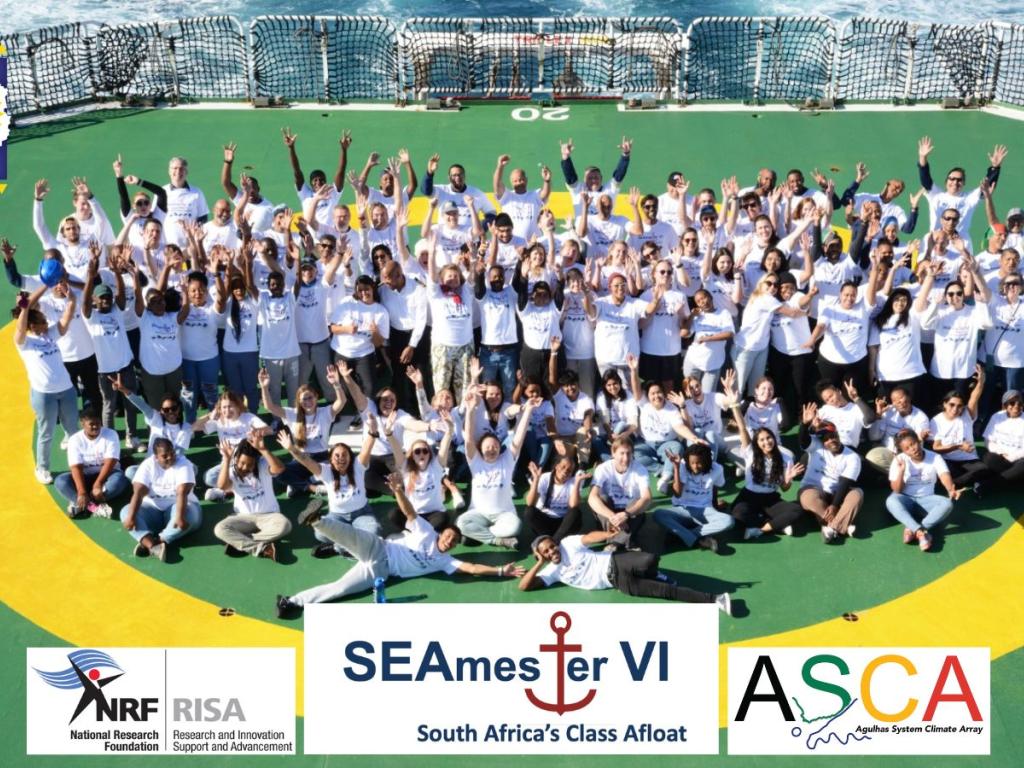
As a young marine scientist, there is nothing more inspiring than going to sea: to be able to be out on the ocean and experience the process of conducting research, whilst contending with constant movement and potentially rough seas, to wake up and see nothing but ocean for miles around you, to experience being part of a research team and to be able to learn from many other experienced researchers, the excitement when you first watch a CTD being deployed! All of this adds to your journey as a marine scientist in ways that are immeasurable.
The SEAmester programme brings together lecturers and students from all corners of South Africa to dive headfirst into the fascinating world of marine science! Picture this: you get to learn about marine science in a totally hands-on way. Yep, no boring lectures! You get to feel the sea breeze on your face as you learn and explore. It's an inspiring experience, and it's not just textbook stuff – the students really get a sense of what being a marine scientist is all about.
SEAmester wouldn’t even be possible without Prof. Isabelle Ansorge (Oceanography Department at the University of Cape Town) and the fantastic Tahlia Henry (SEAmester program coordinator) working their magic to make this whole experience a reality. Behind the scenes, there's a ton of effort and passion going into making this adventure unforgettable. From planning every little detail to getting all the gear packed up and ready to go, the coordinators, lecturers, and crew are putting in hours of work to make sure the students have the time of their life! So, next time you hear those lucky SEAmester students gushing about their incredible marine science journey, remember the incredible team that made it all happen.
SEAmester is branded as the ‘floating classroom’, and it is the annual opportunity for postgraduate students in various sciences to gain firsthand experience of research at sea. The trip takes place over 10 - 12 days in June/July aboard the RV SA Agulhas II and combines theory (in the form of lectures) with ship-based research activities. SEAmester provides young scientists with practical experience and encourages interaction between young scientists and field specialists. Students will choose between two streams: ‘Oceans in a Changing Climate’ or ‘Tools of the Trade’ and students will be expected to work in small groups to complete practical work, assignments as well as designing a detailed research cruise plan. Students who have attended SEAmester in the past, have said that it was an invaluable experience which allowed them to have a clearer idea of their personal research goals and dreams in the marine sciences. The trip provides a networking opportunity for ECRs and possibilities of new collaborations with different universities. SEAmester is a steppingstone for students to build their research base, find new opportunities as a result of the connections built and become more visible through national and international initiatives.
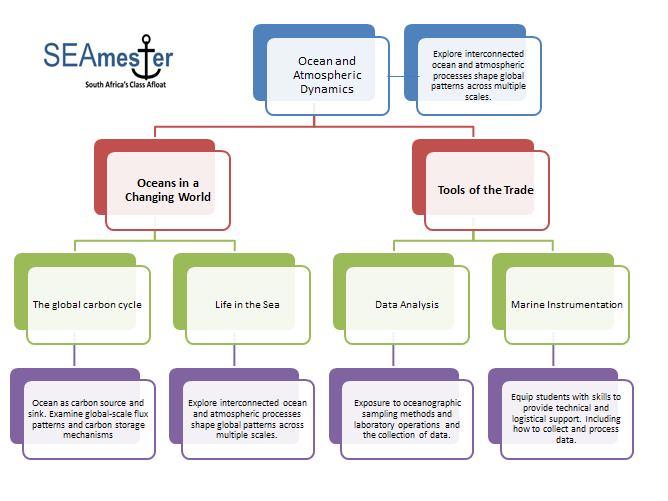
MARiS Science Communication Officer, Leila Nefdt:
“I participated in the very first SEAmester programme in 2016, and I still remember the experience like it happened yesterday. I entered the programme as a DST-NRF Intern from SAEON Egagasini Node and took the opportunity to learn more about the ocean in a changing climate on my very first trip out to sea with several other young researchers from across the country. As students, we got an opportunity to work on deck with the scientists involved in the international oceanographic project, ASCA (Agulhas System Current Array) which ran in parallel to the SEAmester programme. In addition to the scientific and technical lectures during the day, we had evening lectures that focused on birding, photography, and climate change. Coming from a more biological background, it made it a little tough for me to fully comprehend the content of the work, considering that it was primarily focused on oceanography. However, through the completion of daily assignments and with the lecturers being available throughout the cruise for extra consultations, I was able to explore my thinking and comprehension of the way the ocean works. All in all, this programme helped me link up key ocean concepts and marine biodiversity that I have learnt throughout my studies at university. The SEAmester programme fostered an environment for all participants to create life-long friendships and many memorable moments.”
PhD student, Oko Sotshongaye:
“Attending SEAmester in 2022, broadened my knowledge and enhanced my career in Marine sciences. It helped me develop presentation and writing skills and an understanding of marine research activities such as experiments, sampling (training in using ship-based equipment), and data analysis. Through attending the cruise, I had an opportunity to network with students from across South African Universities and scientists from different disciplines related to marine sciences.’’
MARiS Postdoctoral student, Dr Kat Morrissey:
“My first year onboard was such a great experience. The best part? I got to rub shoulders with fellow scientists from all walks of life and at various stages in their careers, all gathered from every corner of South Africa. It’s an opportunity like no other, to be surrounded by people all super passionate about marine science. You can't help but be inspired. We swapped stories and advice, shared discoveries, and geeked out over all things marine-related. Whether you're a seasoned scientist or just starting your journey, the camaraderie onboard is on a different level! It's not every day you get to learn and grow in such a diverse and supportive environment.
It was an absolute blast being a lecturer in the 2023 SEAmester program, and hands down one of the best experiences of my life. Can't wait for the next SEAmester adventure because you can bet, I'm jumping right back on board!”
Prof Isabelle Ansorge shares that there are so many programmes that already include funding and travel support for Early Career Researchers (ECRs) and so it is essential to grow the next generation within STEM, as ECRs need to be able to network with like-minded people and build their research base! We are grateful that the SEAmester programme receives enormous support from the government to continue funding SEAmester and we are now part of the @sea Floating Network a UN Ocean Decade initiative but eventually we will need to host SEAmester in one of the national faculties, perhaps within SAEON to ensure its continuation.
For more information feel free to reach out to Prof Isabelle Ansorge from the UCT Oceanography Department, via email Isabelle.ansorge@uct.ac.za. There are several videos and images found on the website that explains the SEAmester experience, as well as the latest article on the SANAP website.

